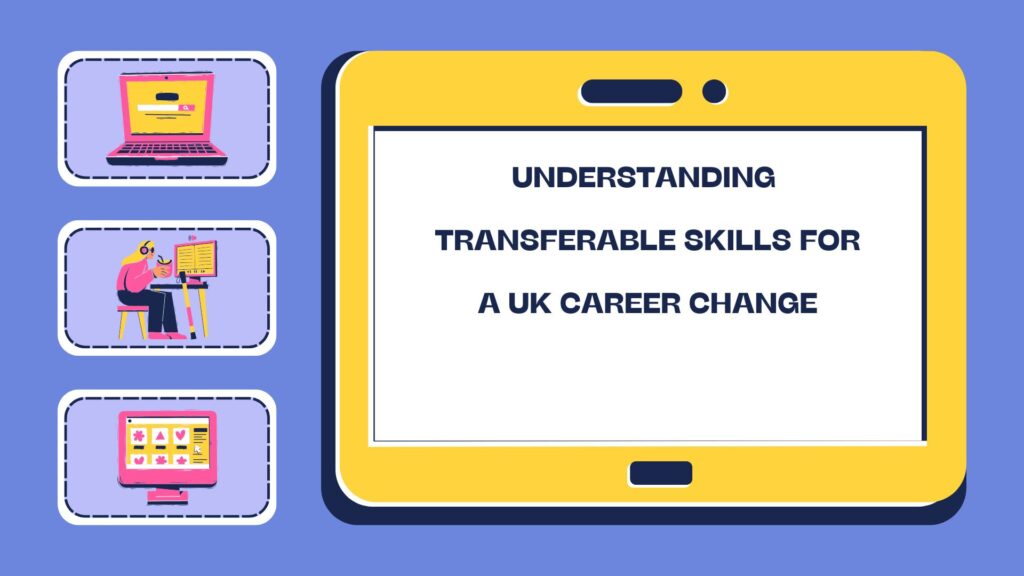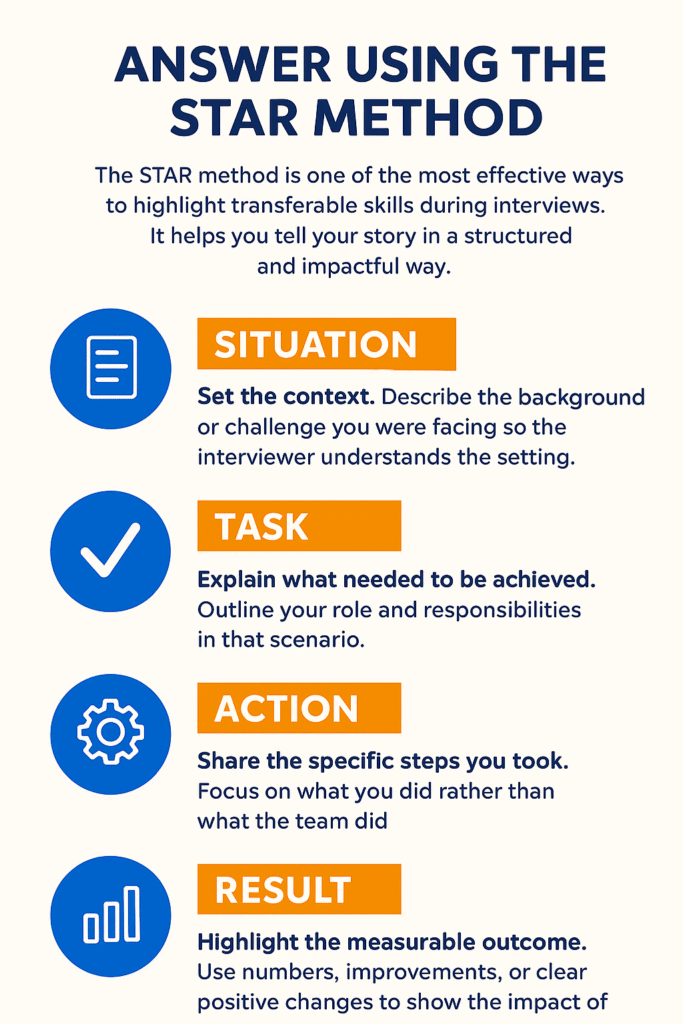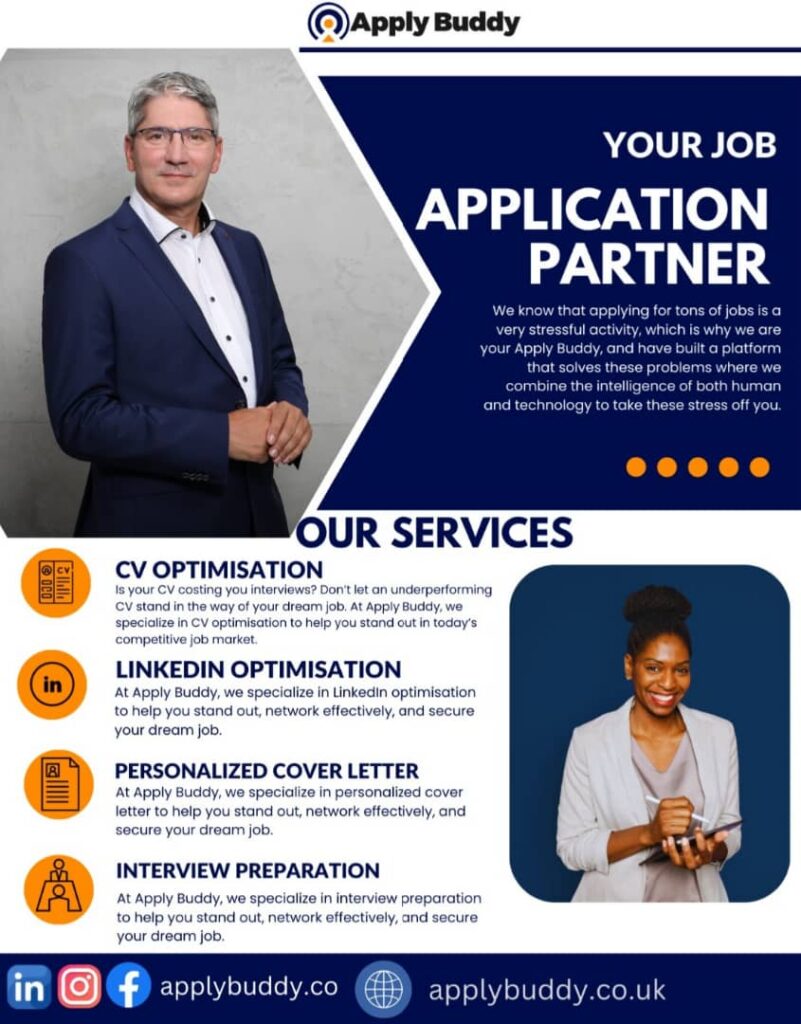Ever wondered what transferable skills look good for career change UK? Changing careers in the UK can feel a bit like packing for a trip to an unfamiliar country.
You know you can’t take everything with you, so the question becomes: what do you bring that will actually help you thrive wherever you land?
That’s where transferable skills come in the abilities that stay valuable no matter the industry. If you’ve ever wondered what transferable skills look good for career change UK, the answer might surprise you.
From communication and problem-solving to adaptability and teamwork, these are the tools that make employers sit up and take notice. And in 2025, with more UK companies open to career changers than ever, showcasing them could be your ticket to a fresh start.
According to a recent report, 37% of UK employees are currently considering a career change, up from 29 per cent in 2023. At the same time, 76% of employers say they’re struggling to find the skills they need. This skills gap is a golden opportunity for career changers.
If you can present your strengths well.
Understanding Transferable Skills for a UK Career Change
Making a career change in the UK is rarely about starting from scratch. More often, it’s about recognising the strengths you already bring to the table and learning how to reframe them for a new direction. Transferable skills act as the bridge between your past experiences and your future opportunities, helping employers see the value you can offer even if you’re moving into unfamiliar territory.

What Counts as a Transferable Skill in the UK Job Market
Transferable skills are abilities you’ve developed in one context that can be applied to another. These aren’t tied to a single industry they work across sectors. In the UK job market, employers often view them as just as important as technical skills, especially when hiring for roles where training can be provided.
Examples include:
- Communication: written, verbal, and digital
- Problem-solving: from resolving customer complaints to streamlining workflows
- Time management: meeting deadlines without sacrificing quality
- Teamwork: collaborating with people of different backgrounds and expertise
- Adaptability: adjusting to new systems, processes, or environments quickly
If you’ve been in the workforce for any length of time, you almost certainly have these the trick is recognising them and showing employers exactly how they’ll help you succeed in a new role.
Read Also:
- How to Create a Career Change Action Plan and Stick to It
- Best Career Advice For Job Seekers in The UK
Why Employers Value Transferable Skills in Career Switches
When you’re making a career switch, it’s easy to worry about what you don’t have the industry-specific experience, the technical qualifications, or the years of direct practice. But here’s the truth: employers in the UK aren’t just looking at what you’ve done before, they’re looking at how you can contribute now and grow with them in the future. That’s where transferable skills become your strongest asset.
When hiring a career changer, UK employers often weigh transferable skills heavily because:
- They reduce onboarding time: You may not know their software yet, but if you’re a quick learner, you’ll pick it up fast.
- They indicate cultural fit: Skills like empathy, leadership, and adaptability mean you can integrate smoothly into teams.
- They future-proof the organisation: Soft and cross-functional skills can be applied to changing priorities and technologies.
- They signal resilience: Career changers often bring diverse experiences that make them more adaptable in uncertain markets.
The LinkedIn Workplace Learning Report UK 2025 found that 57% of professionals say their leadership is concerned about skills gaps in their organisation. This means employers are actively looking for candidates who can fill multiple needs.
Read Also
- Why You Are Struggling to Find a Job in the UK After Graduation
- How to Improve Problem-Solving Skills
Top Transferable Skills UK Employers Look for in Career Changers
If you’re wondering which skills really make employers sit up and take notice, you’re not alone. The good news is that the qualities UK hiring managers value most aren’t always tied to a specific profession they’re human, practical, and adaptable. Let’s take a closer look at the ones that consistently stand out.
1. Communication and Interpersonal Skills
Good communication isn’t just about speaking clearly. In the UK workplace, it includes active listening, professional email writing, and presenting ideas in ways that persuade.
Examples:
- Explaining complex processes in plain English to a non-technical audience
- Mediating between two departments to resolve a process bottleneck
- Writing reports that decision-makers can act on quickly
2. Problem-Solving and Analytical Thinking
Problem-solving shows you can identify issues, break them down, and propose workable solutions. Employers love it because it’s tied directly to efficiency and innovation.
Examples:
- Finding a quicker way to process customer orders that reduced wait times by 20%
- Spotting a trend in complaints and creating a new FAQ resource to cut calls by half
- Analysing market data to recommend a shift in sales strategy
3. Time Management and Organisation
This isn’t just about using a calendar it’s about prioritising work, meeting deadlines, and keeping track of details.
Examples:
- Juggling multiple projects without missing a deadline
- Coordinating schedules across teams in different time zones
- Managing a high-volume inbox so urgent queries are always answered first

4. Adaptability and Learning Agility
In a case where the economy is fast changing, the ability to pivot is essential. This skill is particularly important for career changers, as you’ll often face a learning curve in your new industry.
Examples:
- Quickly learning a new CRM system and training others to use it
- Switching to remote working and setting up new digital processes within a week
- Taking on responsibilities outside your original job description and excelling
Read Also
How to Identify Your Own Transferable Skills
One of the biggest challenges in a career change isn’t a lack of ability it’s recognising the strengths you already have. Many people are so familiar with their day-to-day tasks that they miss the valuable skills hiding in plain sight.
If you’ve ever asked yourself What Transferable Skills Look Good for Career Change UK, the first step is to look inward. Before diving into examples, let’s explore how you can uncover the skills that will carry you confidently into a new role.
Reviewing Past Roles for Overlapping Competencies
Look at your past jobs not just your most recent one. For each role, ask yourself:
- What were my main responsibilities?
- What challenges did I face and how did I solve them?
- Which achievements am I most proud of?
- How did I work with others to get things done?
This reflection will often reveal patterns. You might notice that in every role you’ve been in, you’ve been the go-to person for calming frustrated clients, or for creating easy-to-follow processes.
Using Skills Audits and Career Assessment Tools
A skills audit for career change can be a game-changer. It’s a structured way of mapping what you already have against what you’ll need in your target role.
You can do this by:
- Using free online tools like Prospects Career Planner or National Careers Service Skills Health Check
- Asking colleagues and managers for feedback
- Reviewing job adverts for your target role and highlighting skills you already match
Showcasing Transferable Skills on a CV and in Interviews
Of course, simply knowing What Transferable Skills Look Good for Career Change UK isn’t enough the real challenge is showing them in a way that convinces employers. This is where many career changers stumble, because what looks obvious to you might not be clear to a recruiter scanning your CV or listening in an interview.
The good news? With the right approach, you can make those skills stand out and feel directly relevant to your next role. Let’s break down how to highlight them effectively so that employers see your value straight away.
Tailoring CV Content for a Career Change in the UK
When switching careers, your CV should emphasise skills over job titles. Use a skills-based CV format, which groups abilities into categories and provides evidence for each.
Tips:
- Include a “Key Skills” section near the top
- Use bullet points with quantified achievements
- Mirror the language in the job advert for ATS (Applicant Tracking System) compatibility
For example:
Project Management: Coordinated a team of five to deliver a £50k client project three weeks early, increasing repeat business by 15%.
Giving Strong Examples in Competency-Based Interviews
UK employers often use competency-based questions such as, “Tell me about a time you had to solve a problem with limited resources.”
Answer using the STAR method:
- Situation — Set the context
- Task — What needed to be done
- Action — What you did
- Result — The measurable outcome
Example:
“In my previous role in retail, we had a shortage of staff during the Christmas rush. I created a new rota that maximised peak-time coverage without exceeding budget. As a result, sales increased by 12% compared to the previous year.”

Avoiding Common Mistakes When Presenting Transferable Skills
Even the strongest transferable skills can lose their impact if they’re not presented with care. Career changers often slip into habits that unintentionally make their CVs or interview answers weaker. The good news is these mistakes are easy to fix once you’re aware of them.
If you’re asking yourself What Transferable Skills Look Good for Career Change UK, it’s just as important to know how to showcase them effectively as it is to have them.
Let’s take a look at the most common mistakes people make and how you can avoid them to ensure your skills truly stand out.
1. Overloading Your CV with Generic Skills
If you list too many vague skills like “team player” or “hard worker” without evidence, they’ll blend into the background. Always pair each skill with a concrete example that proves it in action. For example, rather than just saying leadership, you could write: Led a cross-functional team of six to deliver a marketing campaign two weeks ahead of schedule.
2. Failing to Link Skills to the New Industry
Don’t just say you’re good at something show how it’s relevant to the role you want. If you’re moving from hospitality to tech, explain how customer service skills translate into client relationship management, or how working in a high-pressure kitchen environment has sharpened your problem-solving under tight deadlines.
3. Ignoring Quantifiable Achievements
Numbers grab attention. If you’ve improved processes, increased sales, cut costs, or boosted customer satisfaction, state by how much. A 20% improvement in efficiency is far more convincing than saying you helped things run smoothly.
4. Not Prioritising the Right Skills
Your CV should highlight the skills most relevant to the role you’re applying for, not just everything you’ve ever done. If you’re moving into project management, skills like organisation, scheduling, and stakeholder communication should be front and centre.
Boost Your CV with Apply Buddy Optimisation Support
If you feel unsure about how to phrase your skills in a way that gets noticed, professional CV optimisation services like Apply Buddy can help. From making sure your CV beats applicant tracking systems (ATS) to showcasing your skills in the strongest way possible, support like this can significantly increase your chances of landing interviews and job offers.

FAQs For What Transferable Skills Look Good for Career Change UK
1. What transferable skills are in high demand in the UK in 2025?
Communication, adaptability, problem-solving, teamwork, and digital literacy are all in demand, according to the 2025 Prospects survey.
2. How can I prove transferable skills without direct experience?
Use examples from previous roles, volunteering, or side projects. Quantify results wherever possible.
3. Are soft skills more valuable than technical skills for a UK career change?
They can be — especially if technical skills can be taught on the job. Many employers hire for soft skills and train for technical.
4. Can online courses help me strengthen my transferable skills for a new role?
Absolutely. Platforms like FutureLearn and OpenLearn offer free and paid courses to build in-demand abilities.

